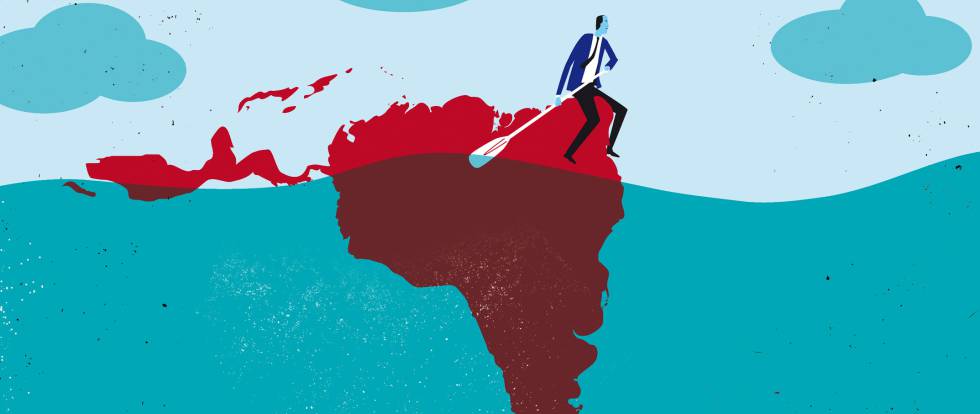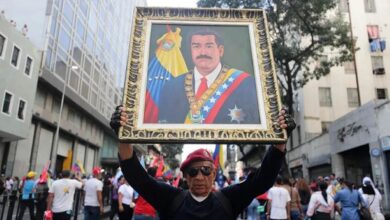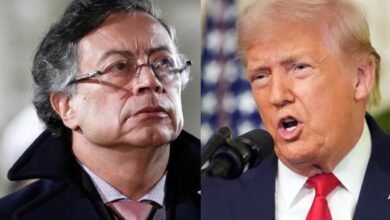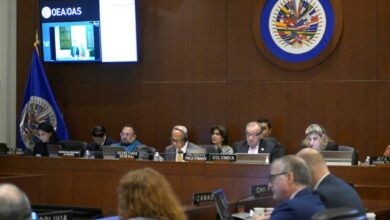Will the 2017 Glass Be Half Full in the Americas?


2017 entered world stage under the sad and horrific shadow of the Aleppo genocide. And while new atrocities come to light every day as the Red Cross and other humanitarian institutions penetrate the ruins of the steamrolled city, the tragedy has drawn together the Arab World against Russia and its autocratic leader Vladimir Putin.
This could become the first step in a 3000 mile journey to limit Russia’s influence in the Middle East. So far however, Russia seems to hold the Assad Administration at ransom. And while this situation prevails, the Syrian Civil War will serve Mr Putin’s expansionary purposes.
In the Americas, however, 2017 seems to have brought a ray of hope in terms of democratic developments.
In the U.S., a move by members of the Republican Party in Congress to dismantle the Ethics Committee met the President Elect’s cold shoulder who tweeted his displeasure with the move. Hours thereafter congressional republicans took back their decision while apologizing to the American people.
What made the episode remarkable was not only the speed of the correction but also the siding of President Elect Donald Trump with the principles of the U.S. Constitution that basically are: checks and balances. This is not only encouraging but clearly a great move by the President Elect.
In Venezuela, while the country now has as Vice President one of the individuals most sought after by worldwide law enforcement agencies on alleged accounts of document fraud and drug smuggling related crimes, two significant developments took place this year.
First The Vatican issued marching orders to the clergy in the sense that they must lead the battle to mobilize citizens support for a democratic regime substitution. This fundamental decision by Pope Francis seems to follow those of his antecessors John XXIII and John Paul II, who instructed Catholic hierarchy across the world to fight for democracy.
John XXIII, when siding against dictatorships ruling the so called Third World, indicated in his instructions to Catholic Curiae “The fact that authority comes from God does not mean that men have no power to choose those who are to rule the State, or to decide upon the type of government they want, and determine the procedure and limitations of rulers in the exercise of their authority.” But he stopped short from incentivizing mass mobilizations against dictators.
John Paul II was less contained. Born and raised in Poland and having lived through World War II and the communist takeover of his homeland, John Paul II had no qualms in heading the resistance against communism worldwide. In his native land, the least kept secret was that of the Vatican support to Solidarity, the workers movement that succeeded in sacking Soviet rulers.
Student movements and pro-democracy groups throughout Central Europe also benefited from the Vatican support.
And who can deny the success of such interventions?
More recently, Pope Francis also launched a successful albeit quite limited campaign. By 2016 it was clear to him that the Province of Buenos Aires could fall prey to a Kirchner government-backed leader with alleged links to drug mafias. Pope Francis spent over eight weeks on the phone calling each head of parish in the Province of Buenos Aires to demand that on Sunday sermons it would be made clear to Catholics that should they vote for the government backed candidate, they would be surrendering the Province to drug mafias.
As a result, against all forecasts, Maria Eugenia Vidal PRO party candidate which also backed Mr Macri for the presidency, enjoyed a landslide victory. Ms Vidal’s election catapulted Mr Macri’s chances to win the second round of presidential elections given that 40% of the country’s electorate resides in the Province of Buenos Aires.
These successful interventions by the Vatican bring hope to the almost lost cause of democracy in Venezuela.
The second cause to hold hope in Venezuela was the courage displayed by the new Assembly President, Mr. Julio Borges when clearly calling on the military to uphold the constitution.
And although Mr Borges stopped short of listing the consequences for their future wellbeing of supporting illegitimate and rogue states, his speech has made an impression. Now the handwriting is on the wall and this could promote second thoughts about the role of the military in Venezuela.





